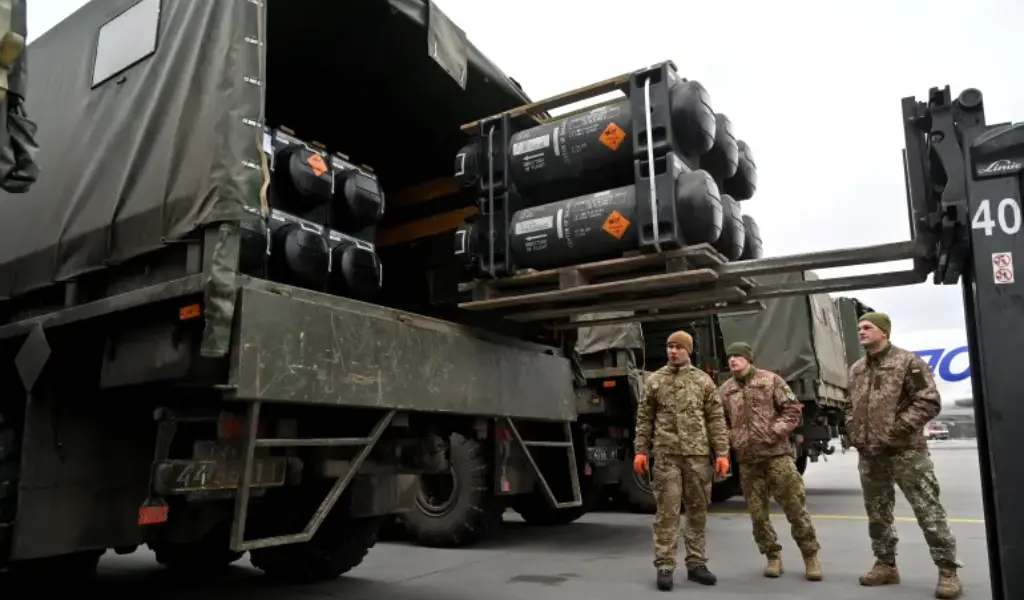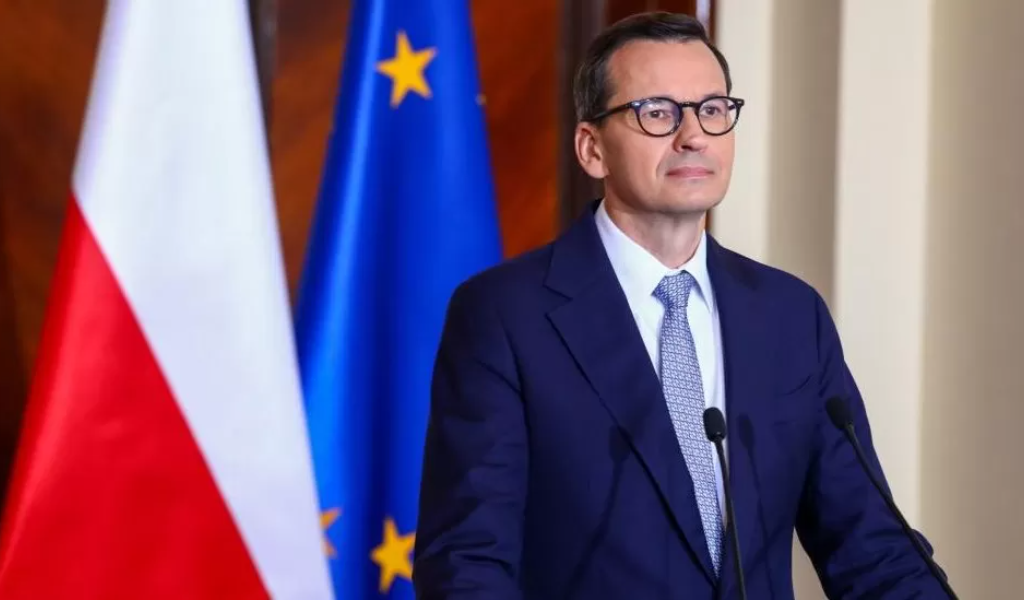News
Poland Shifts Priorities: Ceases Arms Shipments To Ukraine Amidst Grain Export Dispute

(CTN NEWS) – Poland has decided to cease its arms shipments to Ukraine, with the aim of prioritizing its own defense efforts, according to the Polish Prime Minister. This decision came shortly after Warsaw summoned Ukraine’s ambassador amid a dispute regarding grain exports.
Mateusz Morawiecki stated, “We are discontinuing the provision of weapons to Ukraine as we are now equipping Poland with more advanced weaponry.” This response was made when asked whether Warsaw would continue its support for Kyiv in light of the disagreement over grain exports.
Poland has been a steadfast supporter of Ukraine since Russia’s invasion in February 2022 and has played a significant role as a key supplier of weapons to Kyiv.
Additionally, Poland has provided various forms of state assistance to the approximately one million Ukrainian refugees currently residing within its borders.
The tensions between Warsaw and Kyiv originated from Poland’s ban on Ukrainian grain imports, implemented to safeguard the interests of its own farmers. These tensions have escalated in recent days.
Ukraine’s Accusations Regarding European Grain Exports and the EU’s Response
In his address to the UN General Assembly this week, Volodymyr Zelenskiy accused certain European nations of indirectly aiding Russia through their stance on grain exports.
He expressed concern, saying, “It is disconcerting to witness some European countries turning solidarity into a political drama, turning the grain issue into a thriller. While they may appear to play their own roles, they are essentially providing a stage for Moscow’s agenda.”
Mateusz Morawiecki, later speaking on Polsat News television, issued a warning to Ukraine’s authorities, stating, “If they choose to escalate the conflict in this manner, we will expand the range of products subject to import restrictions into Poland.
Ukrainian authorities need to grasp the extent to which Poland’s agricultural sector has been destabilized. Our primary concern is safeguarding Polish farmers.”
The conflict in Ukraine, triggered by Russia’s invasion, has disrupted Black Sea shipping routes that were previously used for grain transportation. Consequently, the European Union (EU) has become a crucial transit route and export destination for Ukrainian grain.
In May, the EU imposed import limitations on Bulgaria, Hungary, Poland, Romania, and Slovakia in an effort to protect local farmers who attributed a decline in market prices to these imports.
These measures allowed the grain to pass through these five countries but prevented its sale on their domestic markets.
However, on Friday, the European Commission announced the end of the import ban, citing the disappearance of market distortions in the aforementioned member states bordering Ukraine.
Poland, Hungary, and Slovakia Defy EU Decision on Grain Imports
In response, Poland, Hungary, and Slovakia immediately declared their intention to defy this decision.
The matter is particularly sensitive in Poland, where elections are scheduled for the following month. The current populist right-wing government, led by the Law and Justice party, enjoys strong support in agricultural regions.
Morawiecki emphasized Poland’s early support for Ukraine and the expectation that Ukraine would consider Polish interests.
He stated, “We were among the first to provide extensive support to Ukraine, and that’s why we anticipate an understanding of our concerns. While we respect their challenges, the interests of our farmers take precedence.”
In response to Poland, Hungary, and Slovakia’s defiance, Kyiv announced its intention to file a complaint with the World Trade Organization (WTO).
Poland’s foreign ministry responded, stating that “applying pressure on Poland in multilateral forums or resorting to international courts is not an appropriate means of resolving differences between our nations.”
Following Poland’s summoning of Ukraine’s ambassador, Kyiv urged Warsaw to set aside emotions and adopt a constructive approach to resolve the dispute.
Poland’s Decision to Cease Arms Shipments to Ukraine and Background Context
Poland’s decision to cease its arms shipments to Ukraine and the background context surrounding this decision. Here’s a summary of the key points:
- Poland’s Decision: Poland has decided to stop supplying weapons to Ukraine. This decision is based on the aim of prioritizing Poland’s own defense efforts. According to the Polish Prime Minister, Mateusz Morawiecki, this move is motivated by the acquisition of more advanced weaponry for Poland.
- Background Support for Ukraine: Poland has been a strong supporter of Ukraine since Russia’s invasion in February 2022. It has played a significant role as a key supplier of weapons to Ukraine and has also provided various forms of state assistance to around one million Ukrainian refugees currently residing within its borders.
- Dispute Over Grain Exports: The tensions between Poland and Ukraine appear to have originated from a dispute over grain exports. Poland implemented a ban on Ukrainian grain imports, which was intended to protect the interests of its own farmers. This dispute has been a source of escalating tensions between the two countries.
- Diplomatic Measures: In response to the tensions, Warsaw summoned Ukraine’s ambassador to address the issue. The decision to cease arms shipments to Ukraine seems to be a response to the disagreement over grain exports.
In summary, Poland’s decision to stop supplying arms to Ukraine is part of a larger context of tensions arising from a trade dispute over grain exports and Poland’s focus on its own defense efforts.
This development marks a significant shift in Poland’s role in supporting Ukraine in the ongoing conflict.
RELATED CTN NEWS:
Oct. 1 Deadline: Strategies To Prevent Federal Government Shutdowns
Bilan: Empowering Voices – Somalia’s Pioneering All-Women Media Outlet Expands Coverage
Asian Development Bank (ADB) Revises Down 2023 Economic Growth Forecast For Developing Asia





























